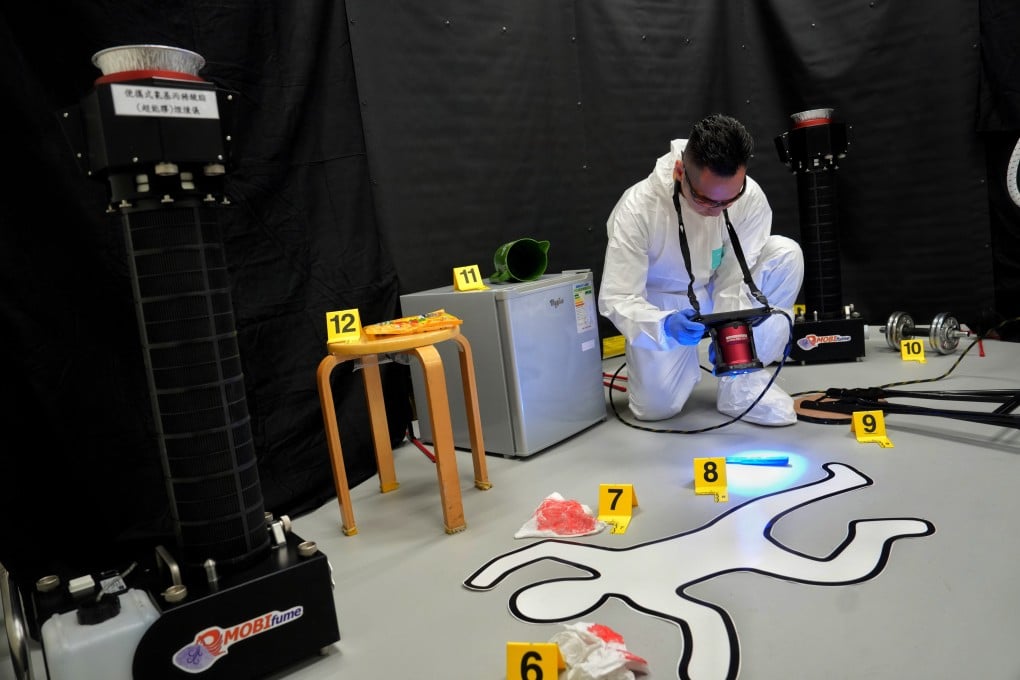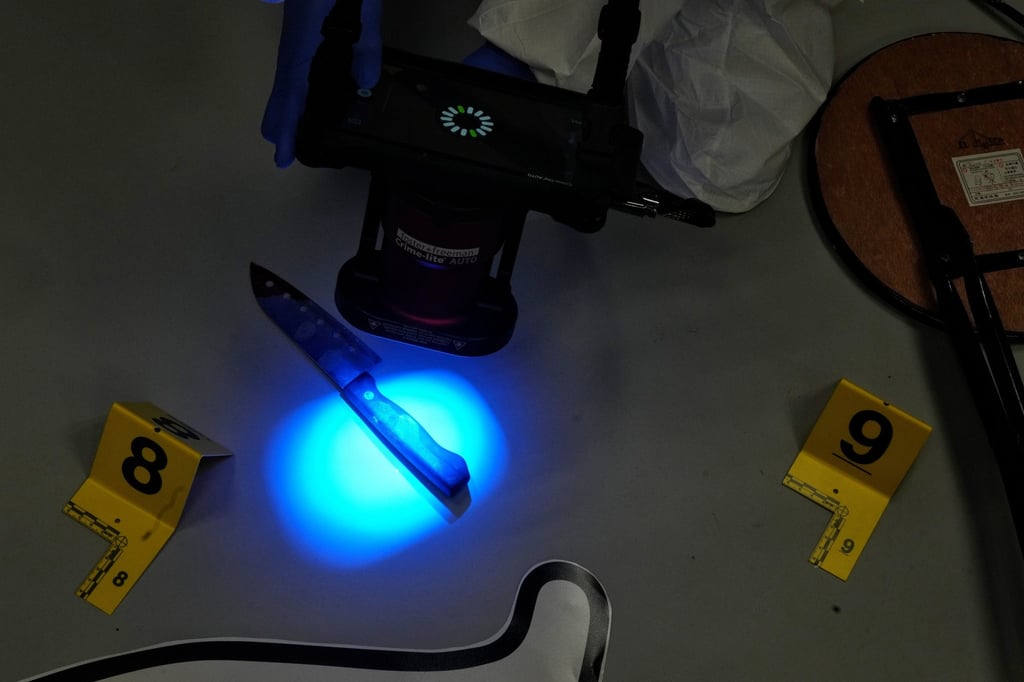Hong Kong’s upgraded fingerprint lab gives police upper hand in capturing elusive evidence
- Size of facility is double previous 2,000 sq ft and has eight rooms designed for different forensic tests
- Force also unveils three new machines that allow officers to detect fingerprints on fired bullets and banknotes

Wearing a hazmat suit, a Hong Kong police officer shone a blue light around a darkened room, illuminating white fingerprints on common household objects that would otherwise remain invisible.
The officer was demonstrating how investigators could uncover the subtlest clues at a crime scene in front of reporters gathered at the force’s recently upgraded and expanded fingerprint laboratory.

The size of the facility is double its previous 2,000 sq ft, and has eight rooms designed for different forensic tests. The force also unveiled three new machines that allowed officers to detect fingerprints on fired bullets and banknotes.
“Over the past decade, the role of forensic evidence has become increasingly important in criminal trials,” Chief Inspector Tony Tan Tung-fai from the Identification Bureau said. “As a result, the number of exhibits we have to process has been constantly rising.”
Last year, the laboratory examined 31,693 pieces of evidence, which helped lead to the arrest of 572 suspects.
The laboratory has proved critical in helping officers solve some of the most serious crimes in the city since the facility opened in 1999.
